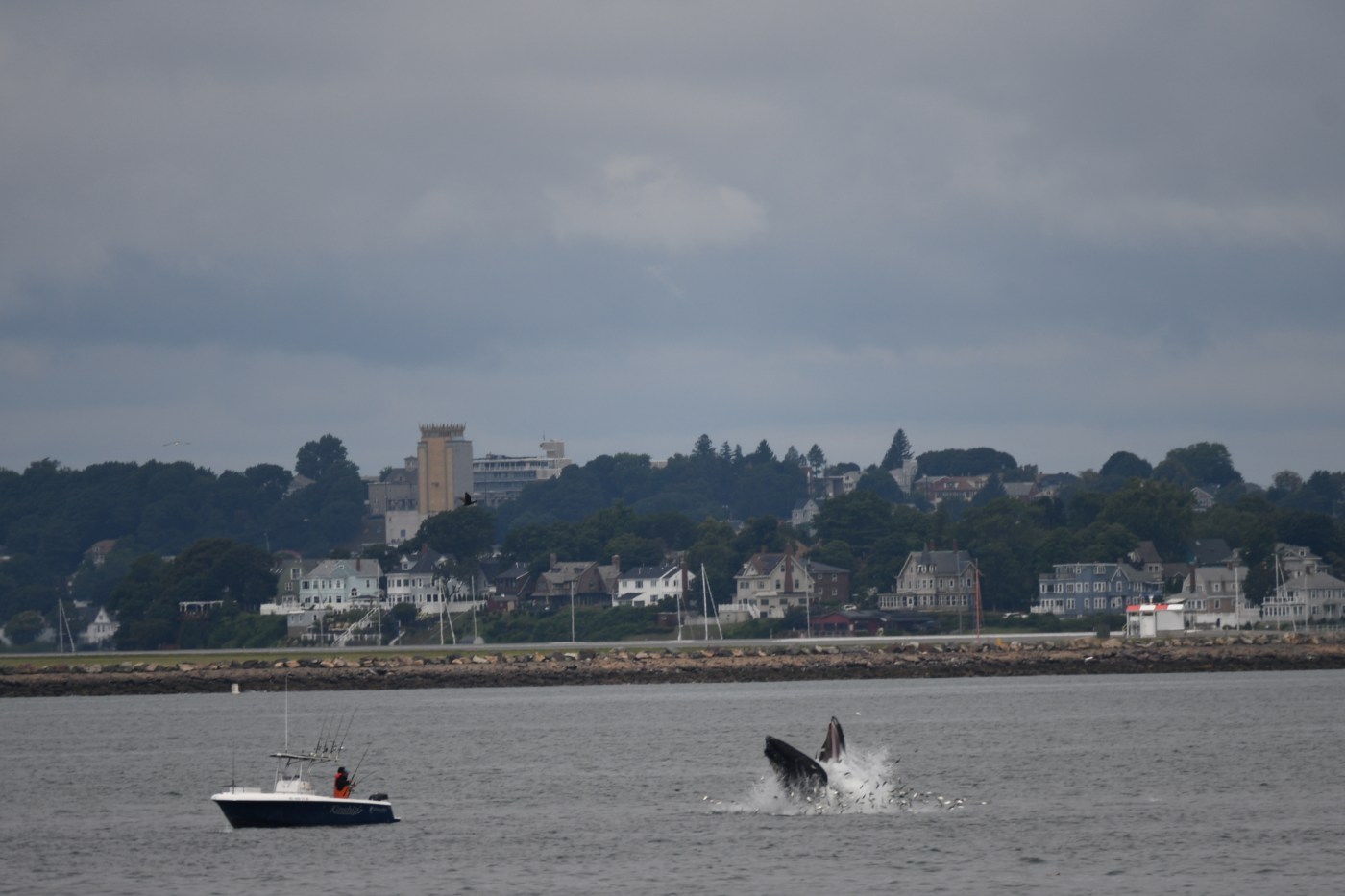
Boston Harbor whale could cause ferry service delays, MBTA warns
A baby whale frolicking in Boston Harbor could make you late for work — as you enjoy the show.
“Ferry service may experience minor delays through (Thursday) due to the presence of a juvenile humpback whale in Boston Harbor,” the MBTA said in an X post on Wednesday.
The post received praise — a rarity for the MBTA — with dozens of people responding that they approved of the reasoning for the potential delays.
One person wrote, “The MBTA social media person is probably so happy to finally have an alert that doesn’t set Bostonians off.”
The 2-year-old whale was observed from the MBTA’s Lynn ferry Tuesday evening, traveling in and out of the Harbor “pretty widely” since the end of July, said Linnea Mayfield, naturalist manager for Boston Harbor City Cruises.
With safety as the top priority, ferry services may experience minor delays while the whale is in the harbor, a T spokesperson told the Herald. Ferries slow to 10 knots, roughly 11.5 miles per hour, when near whales and avoid approaching within 100 feet of observed whales – consistent with federal regulations.
Mayfield called a whale in the Harbor “not entirely out of the norm,” with sightings coming once a year or every couple of years.
The stay of this whale – several weeks – is the longest she’s ever seen, Mayfield told the Herald. In the past, she said that whales were spotted for a day or two, typically in the mid and outer harbor, before they go elsewhere.
“Ideally, we never want to see whales in the harbor,” Mayfield said. “The harbor is very, very busy. There are a lot of vessels in and out of there all day, every single day so a vessel strike is a massive risk and a massive threat to these animals.”
The whale has been seen as far in the inner Harbor area as the Conley Container Terminal in Southie. It has also spent time in the Dorchester area and been seen off Castle Island, Deer Island and Logan Airport, Mayfield said.
“It’s been moving around quite a bit which is why we’re being so cautious right now,” she said. “It’s a pretty active whale, it’s been very surface-active so we want to make sure we’re keeping this whale as safe as we can.”
At most, Mayfield said she sees ferry service not being delayed for more than a few minutes, recommending boaters not to treat this as an “exciting opportunity to jump on any vessel and get out near that whale.”
Boaters should look out for blows and spouts – a column of steam or mist rising from the water – and bubbles. For smaller vessels, at least 500 feet of distance should be between the boat and the whale.
Mayfield encourages people to try to see the whale from land by grabbing binoculars and standing around the harbor.
“We suspect this animal followed prey into the harbor, we’ve had a lot of small schooling fish in the area this year and in areas very close to the coast and Boston,” she said. “This animal is hungry, trying to find food, found itself in Boston Harbor, and is now probably stressed and overwhelmed by the amount of vessel traffic it may not be used to elsewhere.”
Schools of small fish may pose a danger
Fishermen off New Hampshire learned the hard way when a humpback whale breached their boat, tossing them into the water last month.


